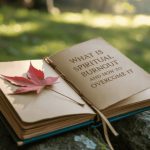Struggling with upsetting emotions, frightening memories, and a constant fear is the result of emotional and Psychological trauma. When you experience any type of trauma in your life, you feel numb, disconnected, and unable to trust people. We shared a number of relationships in our lives, and when things went bad, it became difficult to handle all the stress and anxiety. It also takes a while to get over the pain and feel safe again with the relationships.
Jonah Robins, a leading transformational coach experienced in quickly and safely addressing the emotional and body-based problems of people, shared the self-help strategies to speed your recovery and move on.
When we talk about emotional and psychological trauma caused by stressful events that shake your sense of security and make you feel helpless in a dangerous world, and are called traumatic experiences. It cannot be only physical harm, but also an emotional experience that leaves you frightened and helpless. It can be caused due to an accident, natural disaster, living in a crime-ridden neighborhood, the sudden death of someone close, an abusive relationship, chronic health issues, or a humiliating or deeply disappointing experience.
Here are some tips that will help you recover from trauma.
1. Get Moving: Rebalance Your Body and Mind
Trauma can disrupt the natural balance of your body, having your nervous system “trapped” in hyperarousal or numbness—a form of freeze response. That’s why you’ll feel immobilized with fear or can’t relax. The first and most significant step is to assist your body in metabolizing these stress hormones.
Exercise and movement are strong healers for trauma. Exercise metabolizes adrenaline, releases endorphins, and assists in “unsticking” your nervous system. Jonah Robins suggests rhythmic exercises that involve both your arms and legs, including:
- Walking or jogging
- Swimming
- Dancing
- Cycling
- Drumming or other rhythmic activities
These exercises can redirect your attention from upsetting thoughts to body sensations, which anchor you in the here and now. Even minimal stretching or yoga can be helpful. Meditation and awareness movement, like tai chi, release bad energy and reestablish balance as well.
2. Do Not Isolate: The Power of Connection
One of the most typical reactions to trauma is to pull away from other people. You may feel like no one gets what you’re dealing with, or like you don’t want to be judged. Isolation only makes things worse, though, intensifying feelings of loneliness and hopelessness.
Human contact is an important aspect of recovery. You need not discuss your trauma if you don’t feel ready, but the presence of others can be intensely comforting. The following are some ways to reconnect:
- Call on Close Friends or Family Members: Tell them that you need their company, even if it’s just to sit in silence with them.
- Join a Support Group: Hearing how other people have gone through what you’ve gone through can be very affirming and therapeutic.
- Engage in Social Activity: Go to community events, volunteer, or pursue a hobby that you are interested in.
- Get Professional Assistance: A therapist or counselor can offer a secure, non-judgmental environment in which to sort out your emotions.
You are not alone. There are countless others who have endured trauma and have recovered.
3. Self-Regulate Your Nervous System
Trauma tends to make you feel restless, tense, or out of control. Learning to self-regulate your nervous system is crucial for healing. Jonah Robins recommends a few methods:
- Mindful Breathing: Breathe slowly and deeply. Attempt to maintain a focus on each exhalation for 60 breaths so that your body relaxes and your mind calms down.
- Sensory Input: Find the sights, sounds, smells, or textures that calm you down. This might be listening to relaxing music, clutching a reassuring object, or smelling a pleasant scent.
- Grounding Exercises: Use your senses to ground yourself in the moment. Identify five things that you can see, four things that you can touch, three things that you can hear, two things that you can smell, and one thing that you can taste.
Experiment with different techniques to discover what works best for you.
4. Take Care of Your Health
Physical health is closely tied to emotional well-being. Trauma can disrupt your sleep, appetite, and energy levels, but taking care of your body will support your recovery:
- Prioritize Sleep: Aim for regular, restful sleep. Establish a calming bedtime routine and avoid screens before bed.
- Eat a Balanced Diet: Nutritious foods fuel your body and mind. Avoid excessive sugar, caffeine, and processed foods.
- Limit Alcohol and Drugs: These may provide temporary relief, but ultimately worsen trauma symptoms.
- Practice Relaxation Techniques: Meditation, deep breathing, and gentle stretching can reduce stress and promote healing.
5. Be Patient and Kind to Yourself
Recovery from trauma is not a straight line. There are good days and bad days, and that’s just fine. Acknowledge little wins and feel whatever arises, without judgment. If you’re having trouble, know that asking for help is a mark of strength, not weakness.
Final Thoughts
The road back from emotional and psychological trauma is a process that requires time, strength, and having people around you. By getting your body moving, engaging with others, managing your nervous system, taking care of your health, and being kind to yourself, you can recover your sense of safety and joy. As Jonah Robins reminds us, you possess the inner resources for healing and flourishing—a step at a time.
You must be logged in to post a comment.













Wow! Great Information But It’s not sufficient for me. Could You share me some videos for Rhythmic exercises.
Thanx Eric for your consideration. I will surely send you some videos of mine where you can thoroughly take the idea.